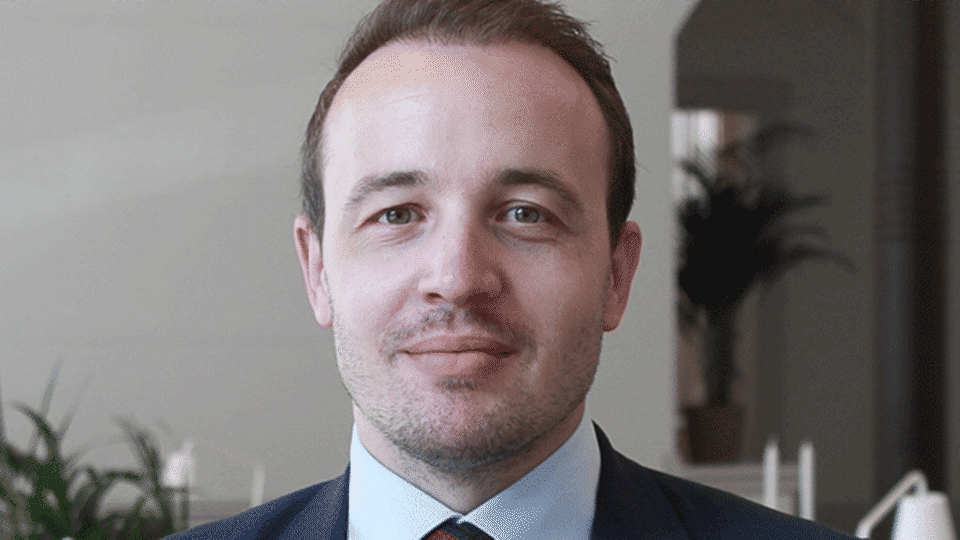Ken Villum Klausen: Death by a thousand cuts and unbundling of banks are so yesterday

It was a short revolution. Thousands of Fintech companies popped up all over Europe and Scandinavia in 2014-2015. Most of their rallying cries were of "death by a thousand cuts" – meaning that many small cuts to the banks would make them bleed out over time and die. And die they would. Who needed those fossils? However, the Fintechs ended up needing the very banks that they had tried to bury.
"When we started in 2015, there was much talk of unbundling the bank. Fintechs were challenging the banks in all fields. Now, two years later, the talk is of bundling the bank. As it turned out, when you launch, there is a long sign-on process. It's regulated by lawmakers and supervisors, so it's difficult to attract users to your product. It's actually easier to sell more products once you already have the customers and they're signed up," says Ken Willum Klausen, founder and CEO of mobile bank Lunar Way, based in Denmark's second-largest city, Aarhus.
The collaboration can go both ways
"Today, you see banks collaborating with Fintech and offering the Fintech companies' products. At SEB in Sweden, the bank has the app Tink incorporated in their app for financial overview. So it's a bank that has invited Fintech in to work as part of the machinery. It's the other way around for us. We can lend money because we have Nykredit Bank in our system. It's like Spar Nord's collaboration with Earn It," says Villum Klausen.
How rebellious and innovative can you be as part of an established company?
"You can be, somewhat. It's the essence of the difference between banks and companies like us. The production speed in the Fintech industry is incomparable to that of the banks. We have a British colleague who openly tells everything about their roadmap to all the banks he meets with, because, as he says: The banks can't copy us. They simply can't build the products fast enough to match us," says Villum Klausen.
Today, the banks see clear advantages in either collaborating with Fintech companies or simply buying them. Villum Klausen highlights this as a very clear point that he brought with him from a recent banking conference in London.
"The British banks have realized that they don't have the same capacity for innovation as Fintechs have. It's simply too expensive for them to set up an equal innovative force. And as the Head of Wealth Management at UBS said a few months ago: We are beyond fighting – I believe he is completely right. Now, we collaborate instead," Villum Klausen explains.
Do your homework
The number of imaginative Fintechs with all kinds of colorful products is on the decline. However, Fintechs with their funding under control and respect for rules and regulation are gaining ground. These companies are in a strong position, and many of their obstacles are gone.
"Things like Fintech come in waves. A few years ago, everything was Fintech. The most incredible products were Fintech, because there was a lot of money in Fintech. Many of the companies are no longer around. Those of us left have started scaling and getting actual business," Villum Klausen explains about the development in the Fintech industry.
But in order to get there, you have to come prepared for the encounter with the regulating authority, the Danish Financial Supervisory Agency (FSA).
"I hear that many small Fintechs come to the FSA, saying "Hello, are we a good example of a payment service?" And then they expect the FSA to answer that. That shows a lack of understanding of how the FSA works, and how to make it through. You need to list the reasons why you are or are not a payment service. You need to have your legal matters under control. Many don't understand that.”
He strongly recommends that Fintechs spend some money on advisers and lawyers to prepare for the meeting with the FSA. Furthermore, raising capital is also an important task:
"Particularly in Fintech, scaling your product requires a decent amount of money. So you really have to be ready to spend some time raising capital, and you can't pay your way out of it. It's footwork that you have to do yourself. Very time-consuming footwork," is Villum Klausen's advice.
But if a company manages to raise capital and get through the FSA, it stands a real chance of successfully launching a Fintech product. Even before the old banking behemoths have developed a similar product.
Ken Villum Klausen passes the baton to Simon Haldrup from Danske Bank's Mobile Life Team.
English Edit: Marie Honoré













